Photos: Homowo marked under coronavirus cloud
This year’s celebration of Ga festival Homowo is being marked under a coronavirus cloud.
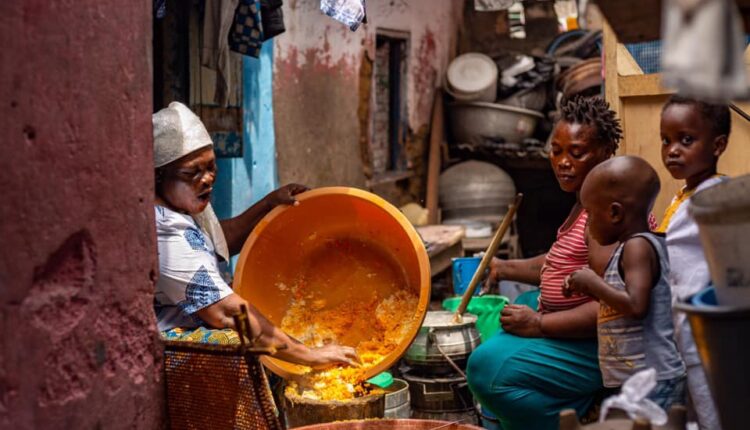
The celebration will only take place in restricted areas in the Greater Accra Region in adherence to the COVID_19 protocols.
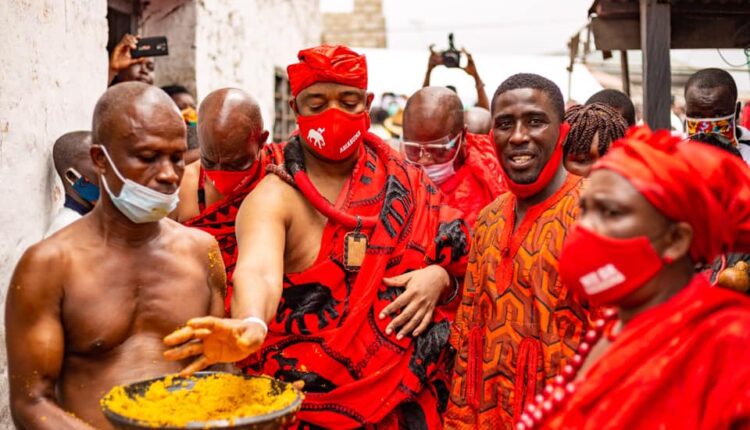
The Ga tribe is believed to have lineage from the Jewish tribe and its ancestral tradition of the pastoral feast.
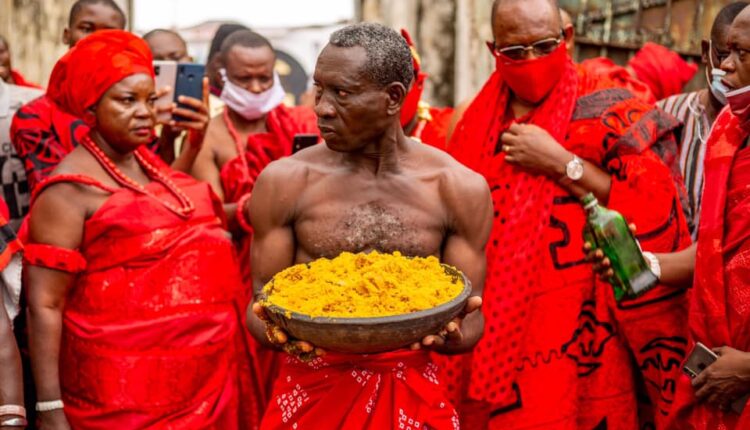
Almost all the towns in the Ga state, Ga Mashie, Dangme, and Awutu would celebrate without pomp but certainly, the essence of the festival would not be lost on the indigenes of the area.
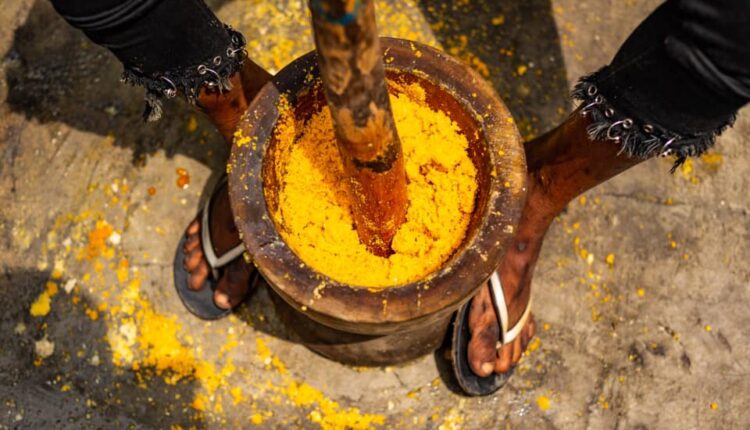
The significance of the festival is to commemorate the period in history when there was serious famine on the land.
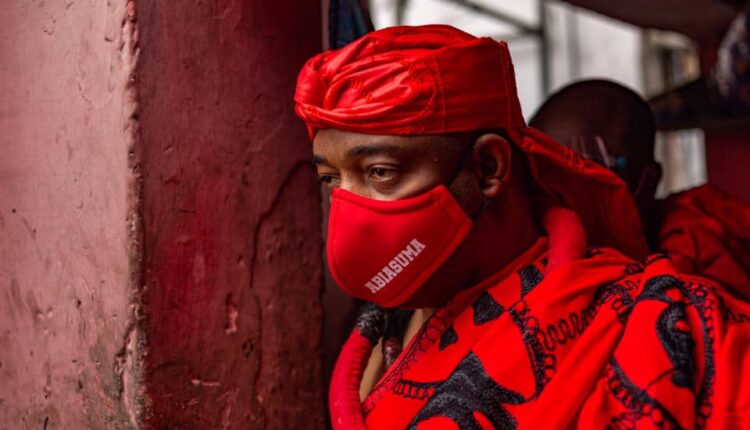
Legend has it that there was a period in the history of the Ga kingdom when there was a severe famine and the people faced starvation.
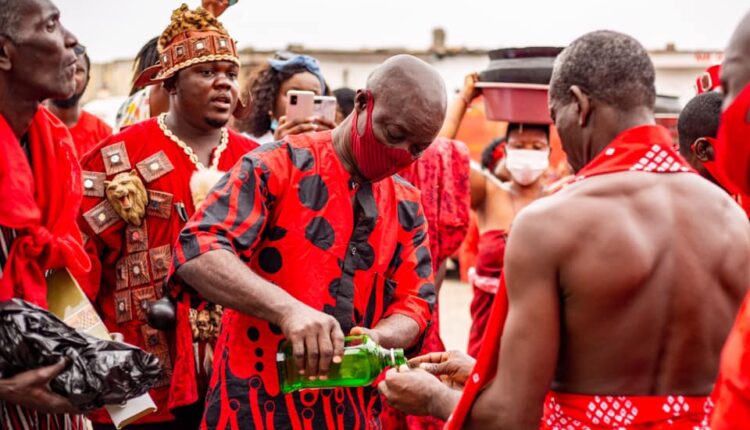
Instead of sitting and wallowing in self-pity, the people were said to have embarked on a vigorous cycle of food production which ended had a bumper harvest.
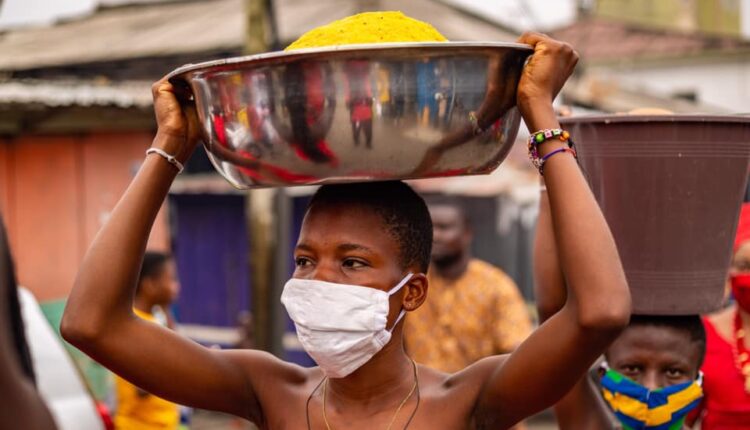
They, therefore, celebrate the Homowo, to hoot at hunger and rejoice in their harvest.
They celebrate by feasting and making incantations for the chiefs and people. They sprinkle food known as Kpekple in the town to drive away spirits and protect themselves against diseases.
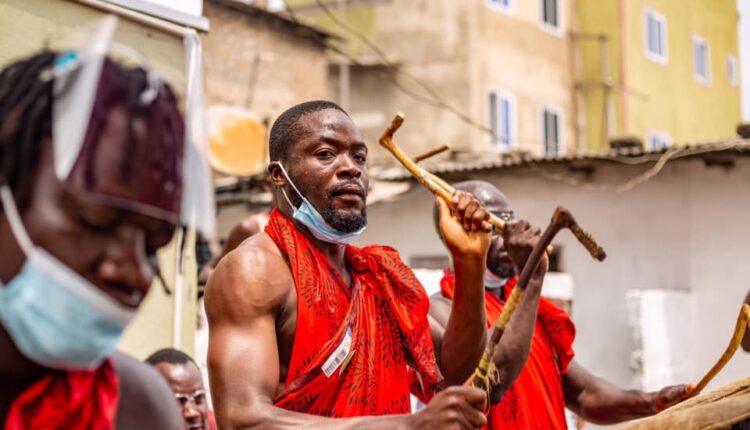
Furthermore, the occasion is used to bring the people together to live in harmony with each other.
Photo Credit: NiiOtoe Bruce-Tagoe of @29PhotoStudio
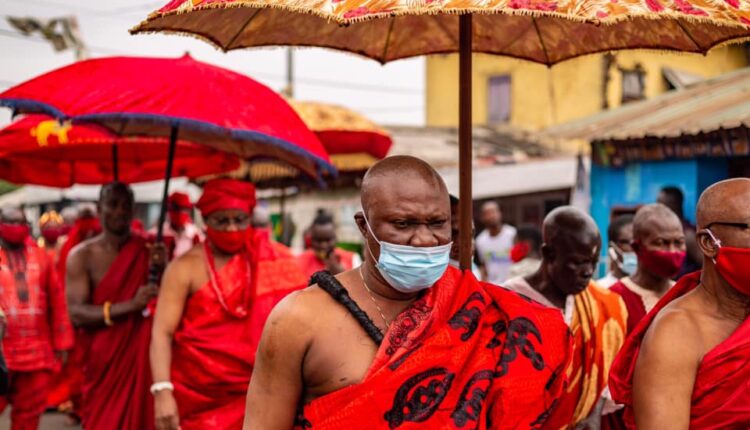
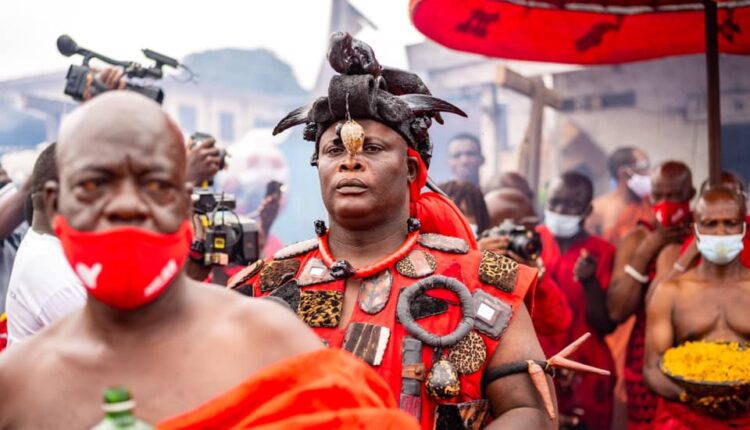
BACKGROUND
- The word ‘Homowo’ means, “hooting at hunger” is actually celebrated in memory of bumper harvest, which saved the Ga people from a famine they had experienced when they first settled in Ga land.
- This festival is a harvest festival, which marks the beginning or harvesting of maize (corn) and fish.
- Before the festival takes place, a ban is placed on any form of noise making. On the first Monday in May to the first Thursday in June, when the ban is lifted. Before the ban, the chief priests and priestesses clear some specific areas that have been designated for the growing of millet or corn (Nmaadumo), which lasts for thirty days.
- The Gas in Nungua are the first to celebrate the festival and this occurs on the first Saturday in July every year. This is followed by the Lante Jan We on the fourth Saturday in July every year. Those of Ga mashie celebrate theirs on the second Saturday in August.
- Since it is a harvest festival, those who are coming from afar (the Soobii) bring along foodstuffs (maize, palm nuts, and firewood), while those at home, especially those along the coast, buy fresh fish from the shore which is smoked and allowed to dry up for about a week.
Sprinkling of Kpokpoi
On the actual day for the Homowo festival, that is, the Saturday, the women start cooking at dawn.
The Odehe (those from the royal houses) for instance, cook overnight in order to finish on time and carry the meal to the king’s palace early in the morning. The king and his people then move out to sprinkle the food in various houses and particular junctions along the way in the area.
The chief and his people are accompanied with an atumpan drummer who drums as some women sing alongside.
Normally, it is those who belong to the royal family or a particular clan who have their houses sprinkled with the kpoikpoi (the festival food).
The chief is not supposed to sprinkle the kpoikpoi in a house that does not belong to the group. Going against this rule may cause conflicts between both parties.
During the sprinkling, the chief and his people fetch some of the meals in each house they enter and add it to theirs for sprinkling in other houses ahead. The sprinkling is purposely to feed the ancestors. This is because of their belief in life after death. The chief and his entourage then return to the palace after this exercise.
Apart from the Chief, some individuals also do the sprinkling. The elder of a particular house may choose to sprinkle kpoikpoi in each door in his own house.
After the sprinkling, some drops of locally brewed gin made of fermented maize (nmedan) are poured on the doorposts, and then everyone comes together to eat from one bowl. Those who may not be part of the family or children around who cannot eat with the elders are served separately. To the Gas, the eating of kpoikpoi in one bowl is a way of showing their oneness.


